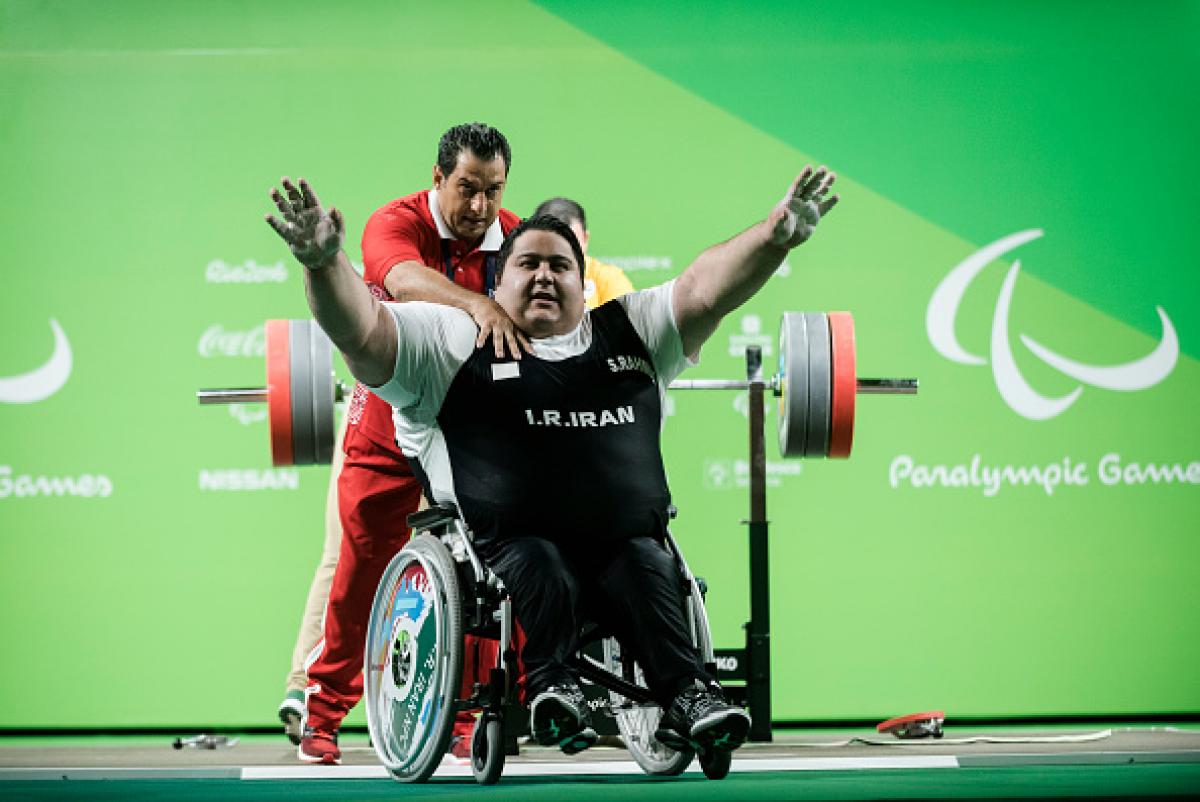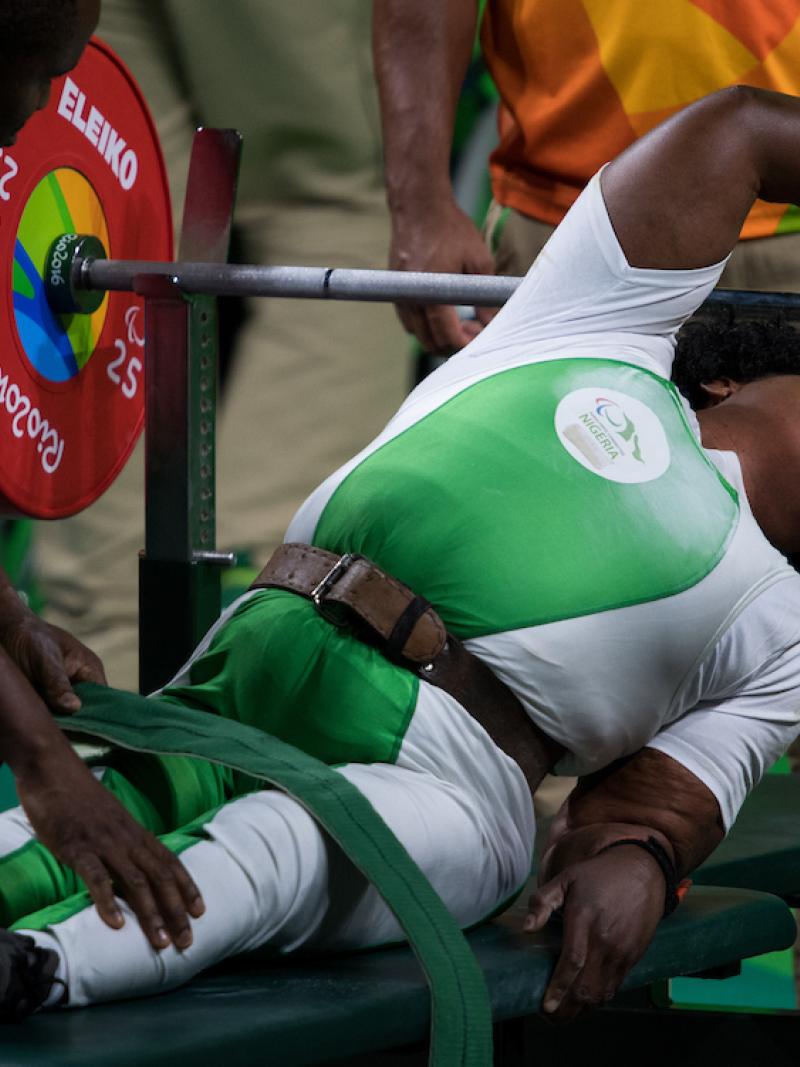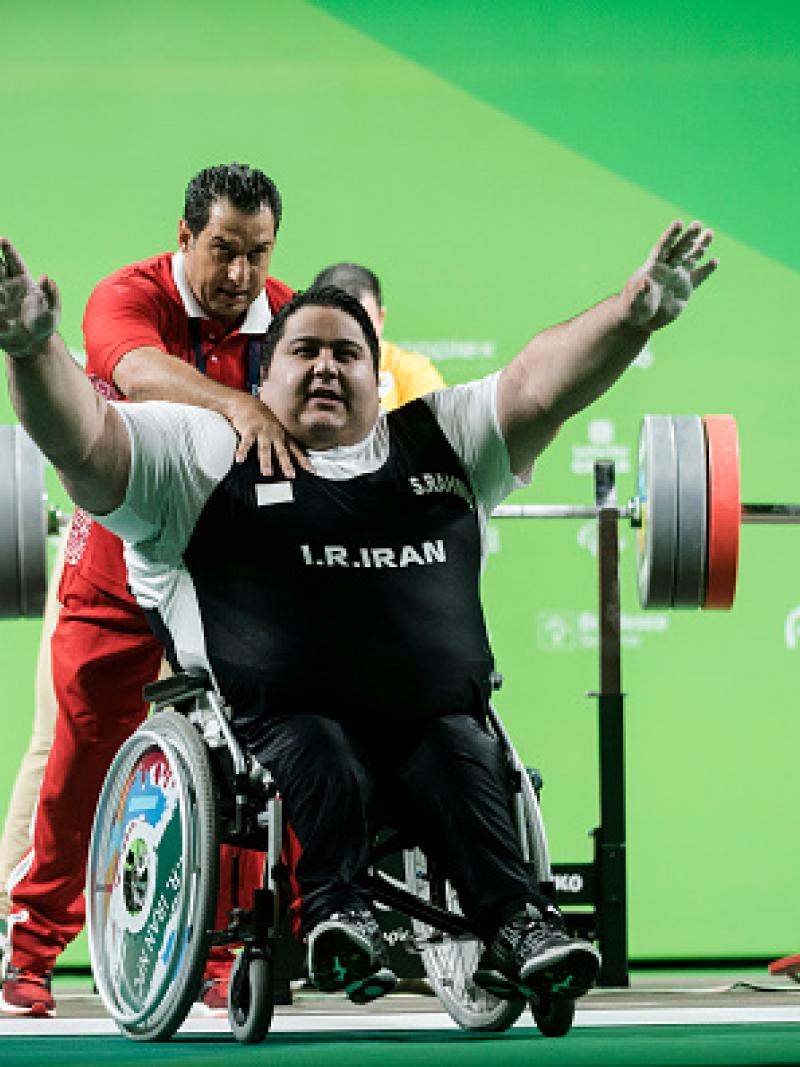Five things we learned about powerlifting at Rio 2016
From the world’s strongest Paralympians to a silver medal for Brazil, these Paralympic Games have shown how captivating the sport can be. 16 Sep 2016
Siamand Rahman of Iran is the world's strongest Paralympian
At the conclusion of 20 medal events at the Rio 2016 Paralympic Games, powerlifters had wowed the world with their incredible strength.
Here are five things we learned about one of the most exciting Para sports.
1. World’s strongest Paralympian delivers on biggest stage
Iranian powerlifting giant Siamand Rahman successfully did what no Paralympian has done before by breaking the 300kg mark in the men’s over 107kg category.
Rahman cleared 270kg with his opening attempt, before reaching 300kg with his next effort.
The two-time Paralympic gold medallist added to that mark with his third attempt with a lift of 305kg, before returning minutes later to successfully push the world record to 310kg.
It is hard to say whether anyone else will be able to match Rahman’s effort, with his closest rival more than 70kg behind him with an effort of 235kg.
2. Records were made to be broken
After world records fell in 15 of the 20 weight categories in competitions in 2015, many thought that mark could not be matched, but Rio 2016 defied all odds.
It was not quite but a further 13 of the 20 world records were eclipsed during these Paralympic Games, showing how far the sport has come in such a short period of time.
3. Nigeria flexes its muscle
The heavyweights of the sport picked up from where they left off in London 2012 by winning the overall medal tally again at Rio 2016.
Nigeria collected six gold, two silver and one bronze to finish ahead of China and Egypt who claimed three gold medals apiece.
Roland Ezuruike (men’s up to 54kg), Paul Kehinde (men’s up to 65kg), Lucy Ejike (women’s up to 61kg), Nwosu Ndidi (women’s up to 73kg), Bose Omolayo (women’s up to 79kg) and Josephine Orji (women’s over 86kg) all tasted ultimate success and are Paralympic champions.
4. Hosts make late impact on the competition
Powerlifting has not been synonymous with Brazil, but the nation now has its first medallist in the sport after Evanio Da Silva claimed the silver medal in the men’s up to 88kg class. An emotional Da Silva said he simply went out there to give it his best, which is exactly what he did as he cleared his personal best mark to reach the podium.
“There is a lot of pressure involved when millions of people are staring at you and you have to be perfect in a few seconds,” Da Silva said.
“It's what I like to do and I know there are a lot of barriers on the way, but I always thought to keep going and be a winner.”
5. Medals are not everything
While finishing on the podium is what all athletes strive for at the Paralympic Games, many powerlifters came to the competition with their own goals and aspirations to leave with a personal best performance. Many were able to achieve this, but there was also heartbreak for several athletes who were unable to clear the bar, showing the harsh reality sport can often produce.

 Facebook
Facebook
 Instagram
Instagram
 Twitter
Twitter
 Youtube
Youtube
 TikTok
TikTok
 Newsletter Subscribe
Newsletter Subscribe



